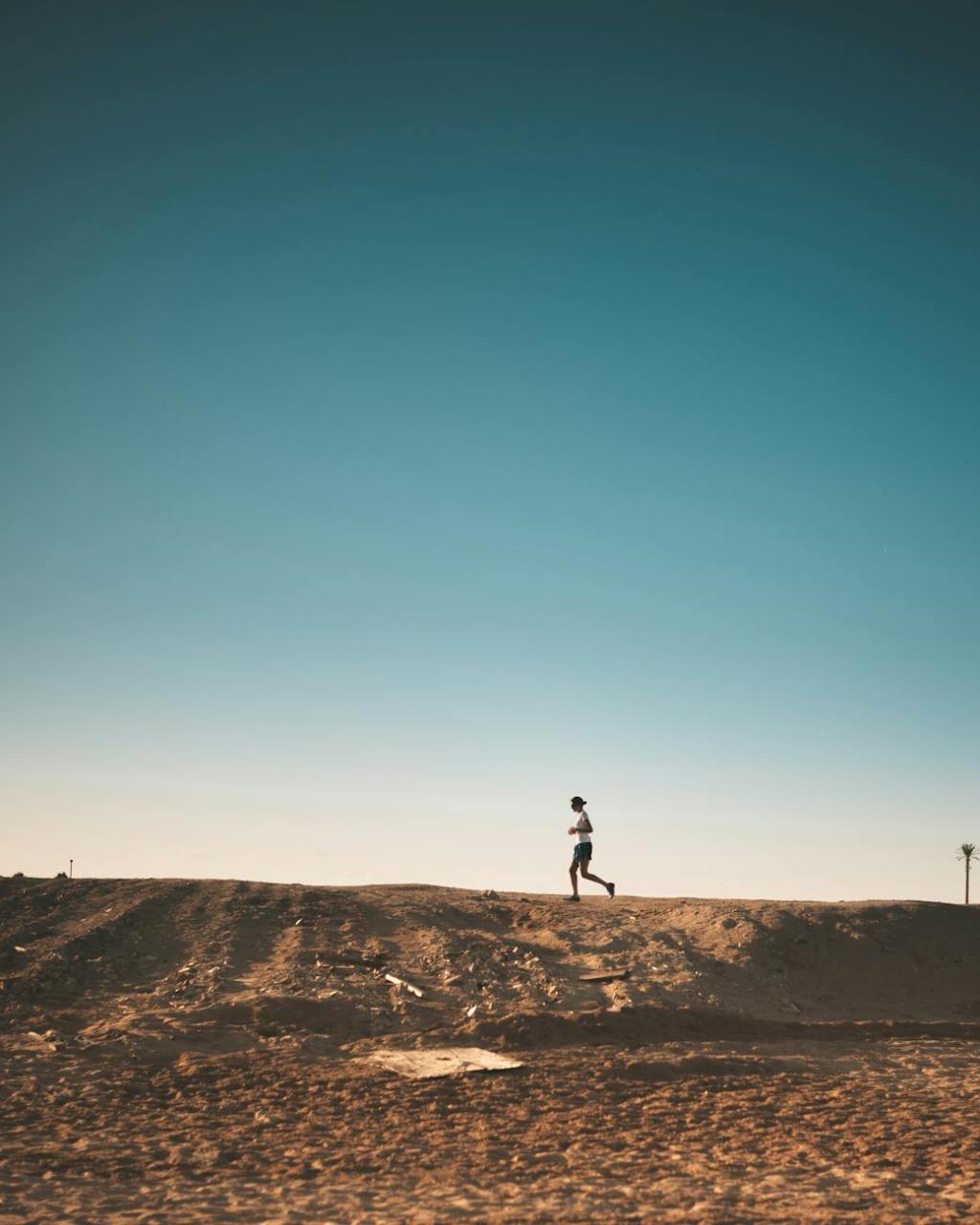Before each journey, we’re apt to envision ourselves as characters in foreign scenes, playing out fantasies about how our time abroad may pass. And prior to arriving in Ethiopia, my imagination had me crammed into local buses, scruffy and tired, as long, lush sections of open grasslands reflected back against my sunglasses. Nigerian afrobeats would pump from the speakers at blistering volumes. I’d look toward the horizon, knowing the Amhara region—a section of Ethiopia’s north—was just a few hours more by road. And after arriving in the north, I’d stare down in awe at the rock-carved churches of Lalibela; I’d watch the Orthodox Christian pilgrims, clad in white, praying at sunrise; I’d wander the walled Fasitl Ghebbi fortress of Gondar; I’d travel east to the Simien Mountains to see the Gelatas and Ibex; and I’d gaze upon the plateaus and pinnacles rising high above the valley floor. But dreams they were, and dreams they’ll remain—for now.
From November 3, 2020, to November 3, 2022, Ethiopia fought a bloody civil war between the Ethiopian National Defense Forces and the Tigray People’s Liberation Front in the country’s northeast. When the war ended, I planned my visit, hoping to explore the country during a period of post-war peace. I’d train jiu-jitsu along the way and use it as a conduit to explore local culture through the eyes of my training partners. Mid-August 2023 was my target window, allowing time for the dust to settle on the RPGs and rifles before they found their way back into disgruntled hands. Then, on August 8th, while I was in Tunisia and readying myself to depart for Ethiopia, an alert from the Economist hit my phone. Son of a bitch! Another uprising in the country, and this time in Amhara. I scoured the web for additional information and found little of worth beyond some broad facts scattered across the news wire. My contacts in Ethiopia were too fresh to probe, especially from a distance, so I decided to watch the news and dig deeper with locals when I stepped foot in the country.
When I landed in Addis Ababa on August 28th, the situation in the north had gotten worse. A police chief was assassinated in Gondar, and local officials were fleeing the region. Paramilitary groups were kidnapping people, and videos of prisoners were being used for propaganda. News reports were inconsistent when available, and the lines of reality seemed to blur between opposing sides. Addis (my jiu-jitsu contact and host in Ethiopia) came with his cousin Mikias to pick me up from the airport around midnight, and after exchanging pleasantries, we drove the dark, empty streets of Bole through the capital while discussing safety and security. Addis Ababa, as always, was safe. The north, however, was entirely unstable and suffering from political and tribal tremors that rocked the region.
“I’m okay taking some risks,” I said. “I don’t mind instability. But if it’s really dangerous, then that’s a different story.”
“Well, you can go,” said Addis, “but there’s no guarantee that something won’t happen to you. There’s no guarantee that something won’t happen to me,” he added. “We just don’t know how dangerous it truly is.”
“Got it,” I said. “Is the whole country this way?”
“You can travel to a few places in the south, but not by road. There are lots of kidnappings going on in the Oromo region, so traveling by land is not a good idea. You can fly to the south, but the north is unstable. It’s not safe.”
“So I came at a great time, huh?” I joked.
“Yeah, your timing was perfect.”
I sat back and eased into the middle seat. A layer of darkness blanketed the city, distorting doorways and structures into amorphous shapes. I’d now be staying in Addis Ababa for the next 15 days. It was time to redefine my vision for the journey.
We arrived at Addis’ home just after 1:00 a.m., and he showed me to my room. I washed up, brushed my teeth, and climbed into bed. I pulled the covers to my chin while the cool air nipped at my ears. I was here now, with nowhere to travel beyond the city limits. Flying to the south for the sake of seeing something else was an option, but for what purpose? To say I’d done so? To continue my routine of reaching, moving, and shifting? I came to train jiu-jitsu with this team. I came to see their lives and experience their world. And this was the perfect chance to throw myself into their days and come as close to their culture as they’d allow. Let things be as they are, I repeated over and over before drifting off to sleep.
It took less than half a day for Addis and me to find a rhythm. After breakfast and a short walk around town, we fell into a winding conversation about books and film. It spilled over into perceptions of reality—then international politics, security, religion, and war. Nothing was off-limits. In his early 30s, with wide eyes and a shaved head, Addis probed me for honest ideas and candid opinions. His curiosity proved enormous in appetite, running the spectrum from modern American culture wars to secular readings of biblical history. And like any great historian, he’d somehow marry our topical conversations to examples of the Roman Empire or to the exploits of Genghis Khan and the Mongol conquests. He’d launch into detailed descriptions, referencing names, dates, and battles. I’d query him on the objectives of the FANO (the Ethiopian paramilitary group at war with the government in Amhara), and thirty minutes later, we’d somehow emerge knee-deep in the assassination lineage of Caligula to Claudius. Ancient Rome was his version of “Six Degrees of Kevin Bacon.” We could always find our way to Caesar within 5 or 6 connection points.
“What’d you study in college?” I asked.
“Pharmacy.”
“Wait, not history?”
“No. Here, we take tests to determine what degree we’ll end up studying. My mother wanted me to be a doctor, but my scores were lower than needed. So I studied pharmacy instead.”
“Is that what you do for work now?” I asked.
“No. I film commercials and I’m working on a few documentary scripts. I worked in pharmacy for a short time, but it wasn’t for me.”
We’d eat and talk. We’d walk and talk. We’d hike the nearby hills along the city’s boundaries and talk. I’d train jiu-jitsu with the team, then take a taxi back to his place and we’d explore topics I hadn’t discussed since graduate school. I’d trip over ideas in a rush to get them to the surface, desperate to build on some conversational crescendo. At times, I’d sit back and listen to his monologues like a student in a lecture hall. I’d soak up his descriptions while we sopped up creamy shiro with fluffy sheets of fresh injera.
“Explain the conflict to me again,” I’d say.
“Okay, so the TPLF used to control the country but lost power…”.
And on and on we went. He cycled through my bouts of ignorance with patience, knowing how the ethnic-factionalism of Ethiopia was a tangled mess.
Walking and talking along the cobblestoned streets of his neighborhood became my preferred pastime. We’d toss on rain jackets and wander the alleys and footpaths of the community he’d grown up in, passing stray dogs and smiling fruit vendors. Children played soccer in the street, kicking weathered balls with sandaled feet. The cobblestones eventually gave way to municipal asphalt, where taxis and trucks buzzed our shoulders as we walked cheek to jowl along the berm. We visited the home of his cousin and talked with his friends. We bought bread and samosas from his favorite bakery and drill bits from his local hardware store. We explored the nooks and crannies of Africa’s largest market. We shot two podcasts in a home studio I helped arrange. For a moment, it felt domestic and familiar. When I walked on my own, neighborly faces filled the landscape. His community, in such a short time, started to feel like home.
As the conversations continued, our relationship morphed from that of a host and traveler to a friendship carved from a stump of intricate dialogue. I came to Ethiopia in search of intrepid adventures colored by a specific vision. Yet what I found instead was a companion who matched my curiosity and pushed me toward new heights of intellectual growth. To Addis, I wasn’t just some guy passing through for a day or two. I was a kindred spirit—one eagerly awaiting the chance to dissect the next complex idea he had in mind. And to me, he was the same.
Passing through. It’s what I’ve done for the last 20 years of my travel life. And for a moment—a brief moment—staying put felt okay. I gained one hell of a friend from it.





Leave a comment